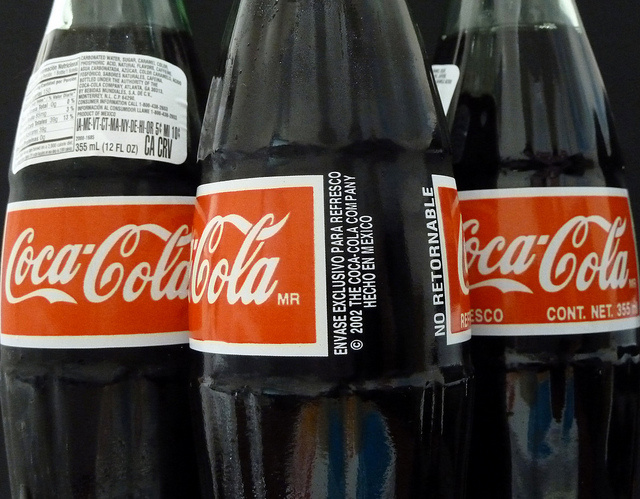The Story of Mexican Coke Is a Lot More Complex Than Hipsters Would Like to Admit

*Do you drink Mexican Coca-Cola? Why? Apparently, if you do it to make a statement in favor of Mexican farmers, you’re not helping. If you’re doing it because it’s healthier … it’s not. If you drink it for the taste, I agree that it does taste different from U.S. coke. This is a very interesting read, it targets assumptions and gives a lesson in international trade. By the way, $5 for a Mexican Coke in some NYC restaurants? VL
![]() By Anne Glusker, Smithsonian.com
By Anne Glusker, Smithsonian.com
Just as lots of people wanted to buy the world a Coke, as the classic 1970s ad goes, a big chunk of the population today yearns for nothing but “Mexican Coke,” seemingly the same brown fizzy liquid in the classically curvaceous bottle—but with one important difference.
Coca-Cola that is hecho en México (made in Mexico) contains cane sugar rather than high-fructose corn syrup, the current whipping boy of the food world. Hipsters and the trendy restaurants they patronize have known about Mexican Coke for some time now, and bodegas in Los Angeles have stocked it to appeal to their Mexican-American customers. But in recent years, Mexican Coke has been appearing in the wide aisles of Costco, signaling a broader interest.
[pullquote][tweet_dis]“If Mexican sugar is supporting a debt-peonage system, is it better to drink a soda made with it?”[/tweet_dis][/pullquote]American Enterprise, a new exhibition at the National Museum of American History, features the slender glass bottle, and curator Peter Liebhold says there’s more to the story of Mexican Coke than a simple preference for one kind of sweetener over another.
Mexico and the United States have long been engaged in a trade war over sugar. Sugar is big business in Mexico, as it is in many parts of the world. In an effort to protect its sugar industry, Mexico has repeatedly tried to inhibit imports of high-fructose corn syrup, which the U.S. had been exporting to Mexico and was being used in place of Mexican sugar to make Coke as well as other products.
While some say that cane workers in small Mexican villages are being forced out of business and shouldn’t have to compete with American prices, Liebhold says the situation is more complicated than that.
“Although there are some small landholders making a living,” he says, “Mexican agriculture today is very much a remnant of the hacienda system.”
He poses some interesting questions: “If Mexican sugar is supporting a debt-peonage system, is it better to drink a soda made with it, rather than with high-fructose corn syrup? Is it better to support paying workers a decent wage, which is what you’re doing when you drink U.S.-made Coke with high-fructose corn syrup? This love of sodas made with sugar; the more you unpack this, the more unclear it becomes.”
Click HERE to read the full story.
[Photo courtesy of SPCR]

